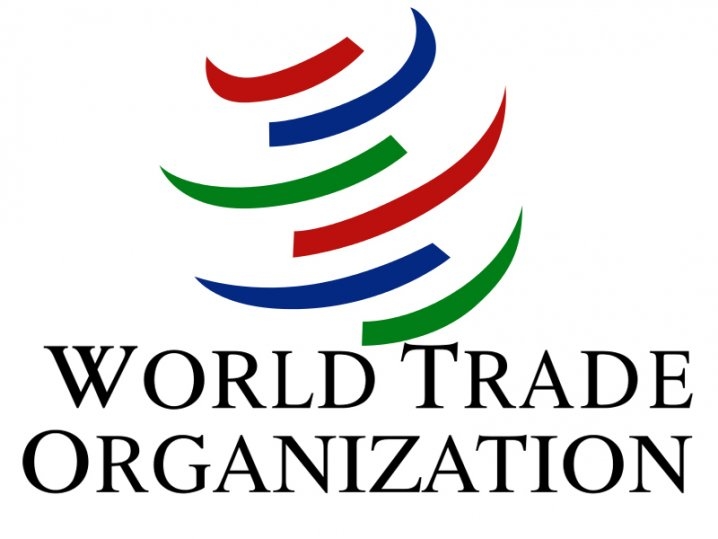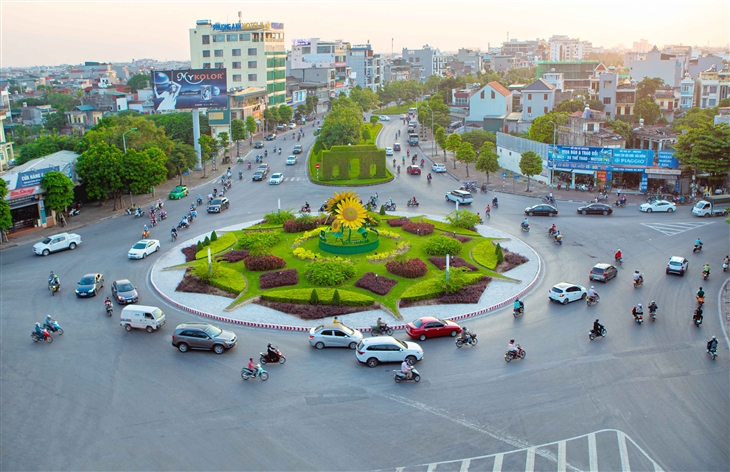
AsemconnectVietnam - Every effort should be made by WTO members — particularly the leading trading nations — to break the impasse in the negotiations on agriculture and work collaboratively to achieve positive results, which would help reduce current tensions in the multilateral trading system, Deputy Director-General Alan Wolff said on 20 April. DDG Wolff delivered his remarks at the China Agricultural Outlook Conference in Beijing.
Here is what he said:
Let me start by thanking the Chinese Academy for Agricultural Sciences and the Market Early Warning Expert Committee of the Ministry of Agriculture for inviting the World Trade Organization to participate in this Conference. I welcome the opportunity to deliver the keynote address at this 2018 China Agricultural Outlook Conference.
China's efforts to promote supply-side agricultural reforms and the outlook for Chinese agriculture in the next decade are widely recognised. They are important not only for farmers, consumers, food manufacturers, distributors, investors, service providers in China, but also for many other private sector stakeholders around the world, given China's increasing role in the global economy.
Looking at the menu of topics over the next two days, it is clear that it will be an informative meeting addressing contemporary issues in the agriculture landscape.
This is the first time that I am participating in China's Agricultural Outlook Conference, but not the first time visiting China. Since I first came here in 1988, to lecture at Fudan University, the country has been transformed. It is a remarkable achievement. It is a great pleasure to be back and witness the dynamism and innovation in China's agriculture sector. Technological progress in China's agriculture sector is important for feeding China and as it is for the world.
Today, I would like to highlight three key topics. I will:
start with a few observations on an important theme at this Conference, i.e. the role of Information Communications and Technology (ICT) in Agriculture; and give an example of how WTO contributes in ensuring that ICT benefits are broadly shared;
emphasize the importance of transparency in building reliable market outlooks as well as a predictable multilateral trading environment;
share my personal reflections on the state-of-play of the WTO negotiations and the way forward.
Role of ICT in Agricultural Trade: Connecting Farmers to Markets
Since the Presidency of China in 2016, the leading role of ICT in Agriculture has been championed by the G20 as an effective way of enhancing global food security and nutrition, increasing farmers' incomes and promoting sustainable agricultural development.
Agriculture has always been a data-intensive sector, but farmers often were unable to access data. And once they did, they lacked the tools to synthesize and analyse it. In the past decade, significant technological changes have affected the way farmers access data and connect to markets. Farmers can now have real time information on their mobile phones.
To inform their production and marketing decisions, small-holder farmers in remote areas can download statistics on weather forecasts, crop conditions and pest prevalence. They can access information on prices, standards in export markets and financial services at every stage of the supply chain.
With ICT advances, the availability, timeliness and quality of crucial information has increased. Data can be shared nearly effortlessly --strengthening connections throughout the agri-food system. Such innovation can boost agricultural productivity; promote the adoption of sustainable production practices (in particular, "climate-smart" agriculture); and foster the application of new risk management techniques. Importantly, enhanced communication between buyers and producers improves the capacity to anticipate and manage risks and improves the efficiency of supply from the farm, through the distribution chain to the consumer..
Ultimately, the international trading system is strengthened through the trust generated by these repeated connections.
Significant changes in the structure of the agri-food economy have created new opportunities for farmers to benefit from global trade. In that sense, ICT can provide essential and affordable tools for farmers who are seeking to connect to new markets. I note that agricultural "Big Data" is among the most important themes of this Conference. It cannot be contested that data and information sharing benefits all economies – high-tech and rural economies; countries that are oriented towards export services; those that specialize in agricultural exports; micro- and small-and-medium enterprises; as well as urban communities.
ICT can also help reduce barriers to participation in the agricultural trading system, ensuring that its benefits are more broadly shared.
SPS standards and traceability solutions are a case in point.
As an illustration, consider the non-tariff measures that food products face as they move through the global agri-food system.
The rules regarding food safety are contained in the WTO's Agreement on the Application of Sanitary and Phytosanitary Measures. These rules require that national food safety standards be based on scientific evidence. To access export markets, producers need to satisfy the food safety requirements of those countries.
To be able to fulfil the relevant requirements, producers need real time information on food safety standards in order to make investment decisions. They also depend on data-intensive systems that will facilitate co-ordination and traceability along the value chain to ensure that their products can be sold in key export markets so as to recoup their investments.
In this area of food safety, the WTO collaborates with the FAO, OIE, WHO and the World Bank within the framework of the Standards Trade Development Facility (STDF), which is hosted by the WTO Secretariat. STDF assists countries to meet food safety requirements in their export markets.
To give you a concrete example, the STDF is currently funding a project in Guatemala aimed at improving the living conditions of beekeepers and other stakeholders in the country's honey chain, by expanding international access for domestically-produced honey by using an electronic traceability system.
- As a first step, a honey chain traceability system was implemented to track the movement of honey through its production, processing and marketing stages.
- An electronic documentation system was established to maintain records, standardize record codes and descriptions.
The system will be permanently cloud‑based, making it easier to obtain the required information without delay.
While Guatemala today exports honey to the European Union, the United States and Central America, the successful completion of this project will help Guatemala enhance its access to these markets; open new growth pathways for honey exports; and result in increased living standards for honey producers in the country.
This concrete example demonstrates the leading role of ICT-powered information and innovation in developing agriculture production, marketing and trade; create new market access opportunities; and improve living conditions in the rural sector.
Last year, on the occasion of the 20th anniversary of the Information Technology Agreement (ITA), whose benefits were extended to the entire WTO membership, many participants reiterated the importance of ICT products in helping developing countries enhance digital connectivity. In December 2015, at the WTO Ministerial Conference in Nairobi, Kenya, the scope of the ITA was expanded to include a further 201 high-tech products. This is evidence of the WTO working tirelessly to enhance market access opportunities, particularly for developing countries, in a way that contributes to the 2030 Sustainable Development Agenda.
At the same time, it should be noted that WTO Members attach great importance to transparency in the ICT area: innovation and technology transfer policies and practices must remain compatible with commitments undertaken not only under the ITA, but also under the TRIPS Agreement and the entire WTO framework.
This brings me to a second theme that is of vital importance to us all: transparency in information exchange and sharing.
The Importance of Transparency
The rules-based international trading system is central to the production, distribution and consumption of agricultural products. The vital importance of transparency in monitoring agricultural supply and demand is widely acknowledged. The focus of this Conference (cereals, oilseeds, fruit, fish, livestock products, cotton, to name but a few) as well as today's release of the China Agricultural Outlook (2018-2027) Report underscore the importance of transparency in this area.
Transparency is one of the fundamental WTO principles and the cornerstone of a predictable trading environment. It enables those interested to anticipate price fluctuations and take the necessary actions in their respective fields of activity, whether individuals are active in futures markets and insurance, or represent the farming community, food manufacturing, trading, distribution, investment, or consumers. Without transparency, informed and sound decision-making, let alone effective risk management, would be elusive.
We have witnessed successive episodes of price spikes in the recent past. The prevention of food security risks caused by price volatility has led many international organizations , including the WTO, to join efforts and actively participate in a major transparency initiative. As you may be aware, the Agricultural Market Information System (AMIS) was set up at the behest of the G20 to promote policy coordination as part of a global Action Plan on Food Price Volatility. In doing so, AMIS relies heavily on the G20 focal points to supply timely and accurate market and policy information, while our GEOGLAM partners draw on advanced earth observation technology and an early warning system to monitor crop conditions worldwide.
In this connection, I would like to take this opportunity to praise the Chinese Academy of Agricultural Sciences for actively contributing to this major undertaking through the continued engagement and participation of China's AMIS Focal Point. All AMIS information products are disseminated on its website as a global public good.
Turning to the WTO disciplines on transparency, the notification performance of our membership has been sub-optimal. The absence of timely and accurate notifications on countries' policies, particularly in the domain of agriculture and fisheries subsidies, has hindered Members' efforts to monitor compliance with existing rules and scheduled commitments.
Importantly, the lack of an accurate picture on Members' implementation efforts has also blurred our collective knowledge and understanding of the present agricultural trade policy landscape. This situation has affected WTO negotiations in many areas. For some time, delegations have been left in the dark on important negotiation matters … a situation that needs to be rectified. It impedes progress in negotiations and can lead to trade conflicts.
To assist the negotiation efforts of Members, the WTO Secretariat will organize a 2-day workshop on agricultural trends in June 2018. We hope that this event will shed useful light on trends in the agriculture trading environment since 2000, including domestic support reform, farm incomes and insurance schemes, rural development and investment, growth of South-South trade, and the emergence of global value chains. Working from a common fact base is essential to taking informed decisions in formulating negotiating positions and in reaching necessary accommodations.
This brings me to my last point, the WTO negotiations.
Negotiations – State-Of-Play And The Way Forward
As you are certainly aware, at the last Ministerial Conference, there was no specific outcome in the area of agriculture negotiations and regrettably, no work programme was agreed. This did not prevent Members from fully re-committing to pursuing the reform process towards the long term objective to "establish a fair and market-oriented agricultural trading system".
There is broad agreement among WTO Members that the negotiations will be carried out pursuant to Article 20 of the Agreement on Agriculture, focussing on market access, domestic support and export competition, while taking into account Members' non-trade concerns and the need for special and differential treatment for developing country Members. If we review the current agenda under each of the main negotiating areas, there is much that remains to be achieved:
On market access, the tariffs facing commodities as well as value-added food products of export interest to many countries, particularly developing countries, continue to be high. Major agricultural exporters will also seek enhanced market access under WTO-bound agricultural tariff quotas. Beyond tariffs, proposals to discipline the growing impact of regulatory measures, particularly sanitary and phytosanitary measures, remain on the table.
Domestic Support measures still create significant distortions to global agricultural production and trade. Available data shows that, since 2001, potentially trade-distorting domestic support has increased exponentially. Strengthened and more effective disciplines are also needed in this area in order to prevent adverse impacts on the livelihoods and food security of poor developing countries.
On export competition, building on Ministers' Decision to eliminate export subsidies in 2015, there is some appetite to re-focus on the other elements of the package, namely non-commercial practices by state-trading enterprises, international food aid and subsidized export credits.
Finally, due to their possible impact on price volatility and food security, export restrictions remain on the negotiation agenda. There continues to be considerable support among the membership to improve the transparency aspects while preserving countries' right to prevent or relieve critical shortages of foodstuffs domestically in accordance with existing WTO disciplines.
Above and beyond these areas, the responsiveness of the agricultural trading system to contemporary challenges, such as rural employment, protection of natural resources, climate change policy, production sustainability, digital trade, adoption of technological advances and innovation, could be usefully enhanced.
The WTO rule-book very likely will be updated to address current and future needs of international trade. As a matter of fact, the winds of change are blowing: a critical mass of WTO Members believes that there is room for improving WTO rules in a way that enhances world economic growth, with a consequent increase in the standards of living in all countries.
During the last Ministerial Conference in Buenos Aires, some 71 countries, accounting for 3/4 of global GDP, have agreed to seek common ground with respect to rules relating to electronic commerce. This topic is categorized as "hot" in the Conference programme. I am also aware that two months ago, a high-profile Conference was held in Beijing on "Innovative, inclusive, strategic and collaborative approach to sustainable cross-border E-Commerce".
An equally important group of WTO Members has started exploratory conversations on investment facilitation.
Some 85 countries have decided to address the needs of micro and medium and small enterprises (MSMEs) to foster improved participation in regional and global markets. Here again, I would like to reiterate that enhanced access to timely and reliable information is among MSMEs' most pressing needs.
The question of gender in trade has also received substantial attention. 118 countries are engaged to find data indicating how women can participate more effectively in world trade.
All of these topics are of vital relevance to the audience today. All are based on data and transparency. Importantly, within these Member-led initiatives, countries have already started exploring the likelihood of achieving the kind of positive reforms that would strengthen global trade policy making in a transparent and inclusive manner, but above all, in a way that supports the multilateral trading system.
Concluding Remarks
With the world's population expected to increase to 9 billion by 2050, there is need to have innovative agricultural systems across the world that will ensure adequate food production for all countries and promote their food security. In that regard, the important role of international trade in agricultural products cannot be overemphasised. The rules-based multilateral trading system has contributed significantly to improving access to high quality food by deficit producing countries and in the process enhancing the living standards of more generally around the world, from the farms and ranches, through distribution and marketing, and including most importantly the end consumer.
Every effort should be made by WTO Members, particularly the leading trading nations, to break the current impasse in the negotiations and work collaboratively to achieve positive results which would accommodate the interests of all countries and reduce the current tensions in the multilateral trading system. Without a vibrant trading system, we would not have seen the tremendous expansion of the global economy in the last seven decades, which has resulted in increased prosperity for all countries. Lack of cooperation among WTO Members will exacerbate tensions, increase uncertainty and disrupt international markets, including agricultural markets, with real dangers for agricultural producers, vulnerable consumers, global agri-food supply chains and investors.
What can be accomplished by WTO Members in the aftermath of the Buenos Aires Ministerial Conference will depend on Members' level of preparation and engagement.
As regards preparation, each Member will need the inputs, assessments, direction and support from all the stakeholders that are represented in the room today: including key government officials, academic and research community, agricultural producer associations, and across the spectrum of the business sector.
As regards engagement, we expect the discussions to be pragmatic, based on specific submissions and underpinned by current data in an inclusive and transparent process. There is much progress to be made this year. And it goes without saying that Members' inputs will shape the agenda.
I am convinced that fresh results in all the negotiating areas I have mentioned above will not only deepen trust and increase collaboration among WTO Members. They will also generate new pathways for sustainable agricultural policy reform and inclusive economic growth. All stakeholders in global agriculture production and trade, and all countries at every stage of economic development, stand to benefit from fully participating in the information revolution and a strengthened and dynamic multilateral trading system,
Thank You.
Source: wto.org






